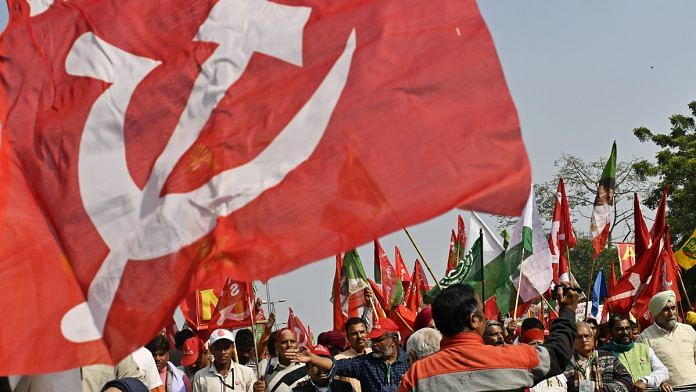How to be a tiger
Arvind Panagariya | Professor of Economics at Columbia University
The Times of India
Arvind Panagariya argues that India’s inflexible labour markets act as a hurdle to its growth. Even the recent decision to replace existing labour laws by four codes is more an act of consolidation than reform.
He further writes that the draft wage code proposes a higher minimum allowance for greater levels of skill. He mentions that “almost no other nation follows this practice”. Linking minimum wages with skill levels negatively affects the growth of enterprises, he argues.
He also writes how media reports suggest that the draft wage code proposes a national minimum wage. He argues against such a proposal and says that if at all a minimum wage is to be set it should be done by state governments based on their respective local conditions.
A New Cast
Kancha Ilaiah Shepherd | The writer is a political theorist, social activist and author
The Indian Express
In this piece, Kancha Ilaiah Shepherd argues that the elevation of D. Raja, who is a Dalit leader, to the post of the General Secretary of the Communist Party of India (CPI) is a historic step. He mentions that the last Congress Dalit president was Damodaram Sanjivayya and the BJP also only promoted one Dalit – Bangaru Laxman – to the president’s post. He further mentions that the CPM has also never promoted a single Dalit or Adivasi to its Politburo.
He argues that the communists “need to lead by example, not just by talking”, and their leadership should have cultivated Dalit-Bahujan leaders from the early days. By the time an intellectual class emerged from Dalit/OBC communities, suspicions had risen that the communist leadership doesn’t allow people from lower castes to emerge as leaders, he writes.
Calling Raja a talented and non-sectarian leader, Illaiah argues that the former can unite India’s parliamentary communist parties.
US-Pakistan dance will cost India
Brahma Chellaney | The writer is a geostrategist
Hindustan Times
Brahma Chellaney highlights the recent improvements in US-Pakistan relations. He writes that President Donald Trump is desperate for a deal with the Taliban and as a result, is “wooing” Pakistan.
Consequently, after Pakistan received a $6 billion IMF bailout, the leading Baloch separatist group was labelled as a terrorist organisation and Trump offered to mediate in the Kashmir dispute.
He further writes that the US “has ample leverage to reform Pakistan, but is loathe to exercise it”. A pursuit of narrow geopolitical interests in US’ Pakistan policy will “impose costs on India”, he adds.
Faltering steps in the anti-AIDS march
JVR Prasada Rao | Former Health Secretary, Government of India
The Hindu
JVR Prasada Rao argues that the joint UN program on AIDS – UNAIDS – is faltering in its approach to combat the problem. He identifies the following set of reasons behind this.
First, he argues, the organisation started to convey an optimistic message that the world will see the end of AIDS very soon even though it wasn’t true. In many countries of Eastern Europe, Central and West Asia, it is still a problem.
Second, he writes, is the mistaken belief that “the AIDS epidemic can simply be treated away by saturating anti retroviral (ARV) coverage”. Third, he says, is the weakening of UNAIDS leadership in many countries where the disease is in high-prevalence.
The most important factor, however, is “the lost voice of vulnerable communities” which used to be the main driving force behind AIDS response. He argues that AIDS activism has suddenly “fizzled out” in many countries which has emboldened them to further discriminate against the AIDS affected population.
Pushing the innovation nation
Ramesh Abhishek | Secretary, Department of Industrial Policy and Promotion
The Economic Times
Abhishek writes on how India is the perfect example of a policy driven innovation environment. It has revamped its intellectual property (IP) rights regime. Trademark examination time has come down to a month from the earlier 13 months. Pendency of patents being examined has halved and the fastest patent was granted in 67 days. He points out that domestic patent filings have risen by more than 42 per cent in the last four years.
He writes how IP awareness trainings are being conducted by the government. He concluded that it is important to make the new generation IP savvy.
The rationale of the central bank’s mandate on inflation
Niranjan Rajadhyaksha | member of the academic board at the Meghnad Desai Academy of Economics
Mint
Rajadhyaksha writes on how there is a compelling case for the monetary policy committee to cut rates by another 25 basis points in its next meeting in August. He points out that there are no immediate signs of a sharp recovery in growth momentum and consumers prices have grown at an average of 3 per cent.
He says fear that the upper threshold of the inflation mandate may be targeted seems unfounded since current RBI Governor Shaktikanta Das has signalled its continuance to be interpreted as before. He concludes that the real debate should be whether the current inflation mandate should continue after 2021.
No light at the end of the tunnel?
T T Ram Mohan | Professor at IIM Ahmedabad
Business Standard
Mohan writes on how it is not all gloom and doom in Indian banking. Disagreeing with former RBI governor Urjit Patel’s assessment of the Indian banking sector, Mohan writes that Patel’s pessimism seems excessive.
He points out that the earlier stressed assets framework was too stringent and prompt corrective action framework is unsustainable beyond a point.
He also writes that there is significant improvement in the assessment of loans and appointment of chairperson and managing director of banks is a more rigorous process.
Fifty years after nationalisation of banks, Mohan says, it would be unfortunate if India substantially abandons the public sector model precisely when the signs were becoming promising.



